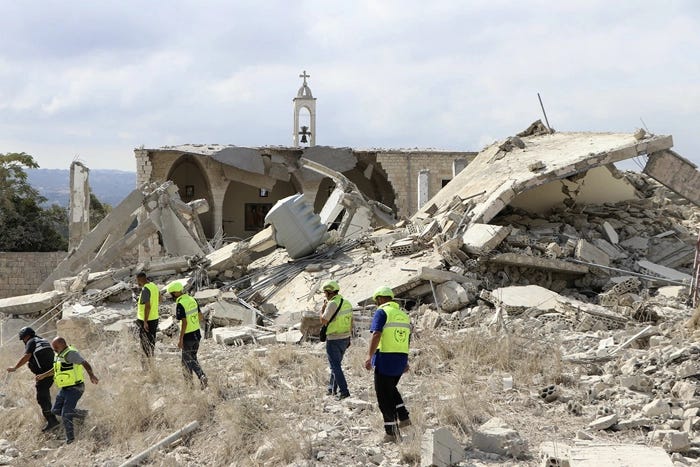The presidential election, as you undoubtedly have made aware of, is right around the corner. (If you have the immense good fortune of not being bombarded by peak swing state election advertising at the moment, thank for your lucky Electoral Collegiate stars because let me tell you, things are rough in the Commonwealth of Pennsylvania right now.)
Now the most exciting thing about Kamala Harris is that she’s not-Trump while simultaneously being, in a fun and unexpected twist, not herself the senile octogenarian author of the 1994 Violent Crime Law. There remains, in this as in every presidential contest, an incredible sense of urgency because of the fact that elections end at a certain time on a specific date.
If you want to knock doors for fourteen hours a day or pass out yard signs for your chosen candidate until your fingers bleed, well, at least one major political party and a churning sea of political action committees would love your help. It’s not like you’ll be able to do it come mid-November, so you might as well get those hours in while they count.
In fact, the entire campaign apparatus is required by law to abolish itself once the votes are counted. No wonder there’s always such an unmeasured urgency to each electoral plea, more breathless promises that this election is, as the preceding one was before it, the most important of our entire lives.
There’s no downside to burning through as many idealistic college or retiree volunteers as possible; there wouldn’t be anything for them to do the following year, anyway.
As the Wisconsin chair of the Democratic Party puts it:
“For anyone who’s knocking on doors, if you think for a second you’ve got it in the bag, then go and sign up for another volunteer shift to drive it even higher.”
This sort of exploitative churn isn’t limited to GOTV outfits. Countless charities and community organizing nonprofits (to say nothing of “community” “organizing” nonprofits, if you get my drift) likewise depend on legions of low-ranking staff and volunteers perennially on the razor’s edge of burnout. Who are you to refuse another hour of door-knocking or phone-banking, they’re told, unless you don’t really care about workers, or women, or whales. Since they’re eminently replaceable by virtue of their lack of actual decision-making power, there’s likewise no cost to their bosses for burning through them as quickly as possible. At least those of them with college degrees will get the chance to jump ship to private sector jobs in marketing or consulting or whatever after they throw in the towel after a couple of years.
Then add to the mix the extremely American notion that “activism” is a pastime exclusively for undergraduates. This is why “student activist” is a Type of Person, but “middle-aged activist” isn’t. If oppositional political organizing is conceptualized as a thing you hang up in the your mid-twenties, no wonder that we reproduce models that encourage students to go really hard and burn out over the course of a degree program.
The thing about grassroots organizing is that nobody gets paid to replace us. If a tenants union burns through all the residents in an apartment building, the campaign is dead. If you can’t get folks to voluntarily give their time to the weekly food distribution, you no longer have free food distribution in your neighborhood. So many student organizers have been burned out, prosecuted, or academically disciplined over the past year that the US and Israeli regimes were able to open a bloody new front in Lebanon this fall with drastically reduced domestic opposition.
I’m not arguing that we coddle ourselves or our comrades. I don’t think we should limit ourselves to comfortable, safe, performative activism. God knows the things we’re fighting against are horrifying and urgent, which is why it’s imperative that we build the capacity to fight back in more aggressive ways. But organizing against empire is a marathon. We need to figure out how to struggle more intensely over the course of months and years.
As Ayesha Khan writes in an excellent piece on building sustained momentum for radical social movements:
We need to build resilience like a muscle that is stretched, toned, strengthened & flexed over time. Living under capitalism/ colonialism, we’re socialized to be narcissistic to varying degrees and such self-centeredness breeds fragility. We often care way too much about being right rather than doing what must be done for us to be free. We care too much about being perceived as someone who “knows” what they’re doing, who is “radical”, morally just, etc etc and it gets in the way of collective progress. We often cling to what is familiar or comfortable & avoid change because it is fundamentally terrifying or uncomfortable. But when we start to live in a manner that puts the people & the land at the center of our universe rather than our individual selves, we push through those hardships.
As we ask what a person we’re organizing with might do for the next meeting, the next demonstration, the next action, we must also ask: how will this help this person play their role in the movement in the next decade? Are they being equipped to take initiative and exercise autonomy and develop capacities and relationships or are we using people as instrumentally as the parties do around election time? Are we building organizing cultures that hold us only insofar as we contribute to The Cause? Or are we building spaces that can sustain us as complex and contradictory people, allowing us to bring more and more of our whole selves to liberatory work?
Rome didn’t fall in a day.
This post has been syndicated from In Struggle, where it was published under this address.



